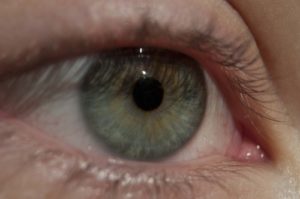
VA Compensation Appeals for Lacrimal Duct Disorders — Everything You Need to Know
Did your military service cause or contribute to your lacrimal duct disorder? Did you file a claim and receive a denial? You can appeal that decision. However, this process is difficult, time-consuming, and often unsuccessful if you do not know the best way to approach your appeal. A veterans’ disability advocate can help you obtain the lacrimal duct disorders veterans benefits you deserve.
Call (888) 373-4722 for a free consultation.
Types of Lacrimal Duct Disorders
There are several types of tear duct conditions that might entitle you to veterans’ disability benefits. They include, but are not limited to, the following:
- Epiphora: Uncontrollable tearing of the eye
- Dacryocystitis: Infection of the lacrimal (tear) sac
- Duct obstruction: Prevents tears from draining; involves backflow of tears and eye discharge
Causes of Lacrimal Duct Disorders
There are several different causes of lacrimal duct disorders. They include:
- Infection
- Inflammation
- Trauma
- Scarring to the face near the drainage system
How VA Rates a Lacrimal Duct Disorder
To determine the compensation to which you are entitled, the U.S. Department of Veterans Affairs (VA) issues you a disability rating in tiers of 10% up to 100%. To obtain this rating, the VA uses the U.S. Code of Federal Regulations’ schedule of ratings for disease of the eye.
It rates lacrimal duct disorders depending on whether they are unilateral or bilateral. VA issues a 20% rating for bilateral lacrimal duct disorder and a 10 percent rating for unilateral lacrimal duct disorder. Bilateral means it affects the tear ducts in both eyes; unilateral means it only affects the ducts in one.
Lacrimal Duct Disorders Benefits
- 10% disability rating: $142.29 per month
- 20% disability rating: $281.27 per month
How to Ensure the Success of Your Disability Benefits Appeal
For your appeal to be successful, you must establish the following:
- A valid diagnosis of your condition — You must have a current and valid diagnosis of a lacrimal duct disorder.
- A traumatic in-service event, injury, or illness — Many of the causes above can occur during military service. You must be able to identify an event during your military service that likely caused your lacrimal duct disorder or be able to establish that it began while you were serving.
- A Nexus Between Your Condition and Your Service — Arguably the most challenging part of a successful appeal is establishing a nexus or link between your condition and service. This is where an advocate can be especially valuable.
Call (888) 373-4722 to get started with an appeal for lacrimal duct disorder veterans benefits.
How a VA Disability Advocate Can Help with Your Case
Many veterans make the mistake of filing an appeal on their own without representation. While representation is not a requirement, it can feel impossible to handle an appeal on your own, especially if you do not have experience handling these cases. Trust your case to someone who has handled countless veterans’ disability appeals. A veterans’ disability advocate can handle all the following for you:
- Gather the necessary evidence — If the VA denied your claim because you lacked certain necessary evidence, a VA disability advocate can help you gather the necessary evidence for a successful appeal.
- File an appeal — Your advocate will file the appeal on your behalf and ensure you have done so through the correct lane in the reformed appeals process.
- Meet all deadlines — There are several deadlines of which you must be aware when you navigate the appeals process. An advocate will ensure you meet all necessary deadlines to protect your right to benefits.
- Represent you in front of the Board of Veterans’ Appeals — If you choose to take your case to the Board of Veterans’ Appeals, an advocate will represent you and argue your case.
- Communicate with the VA — Talking with the VA can be nerve-racking. A veterans’ disability advocate will manage all necessary communication so you can focus on the demands of your daily life.
- Keep you updated on your case — You should not feel as if you are in the dark during your case. Our veterans’ advocate team will give you regular updates about your case.
To learn more about how a VA disability advocate can help with your case, call (888) 373-4722 for a free consultation.
Get Help from a VA Disability Advocate
Getting the lacrimal duct disorders veterans benefits you deserve is not always easy. However, you do not need to handle it alone. A veterans’ disability advocate can help you manage every aspect of your case.
Call (888) 373-4722 today for veterans’ disability help. The initial consultation is free, and you never pay until you obtain benefits. *



